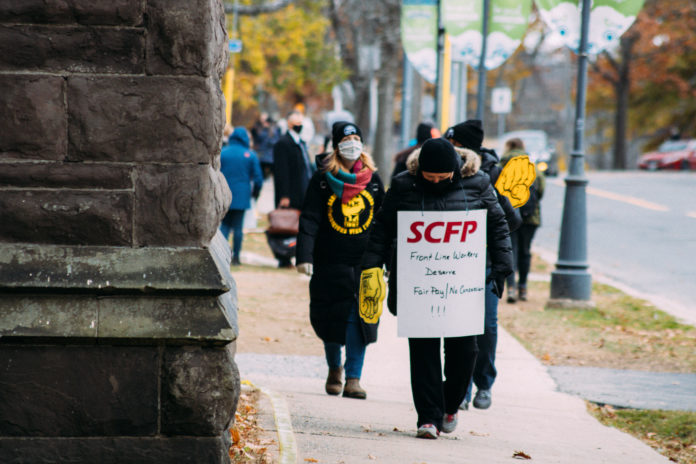

Ten out of 11 New Brunswick locals from the Canadian Union of Public Employees, including Local 963, which represents workers from the New Brunswick Liquor Corporation, ratified the wage agreements offered by the Higgs’ government.
CUPE Local 1253 was the only local that didn’t agree to the province’s offer. This local represents school bus drivers, custodians and maintenance workers.
CUPE leaders made the announcement during a press conference at the Fredericton Inn on Friday morning. It comes after a two-week strike that forced roughly 22,000 public servants to hit the picket lines.
Stephen Drost, president of CUPE New Brunswick, told reporters that although the union achieved its goal for better wages, it was an extremely difficult journey. While he’s pleased with the work members did, he said there’s still a long way to go.
“I truly believe it should have never gotten to this level,” said Drost. “I think the government should have been much fairer to you, as the frontline workers, a long time ago, and should have never, ever forced you out on the streets to try and negotiate wages.”
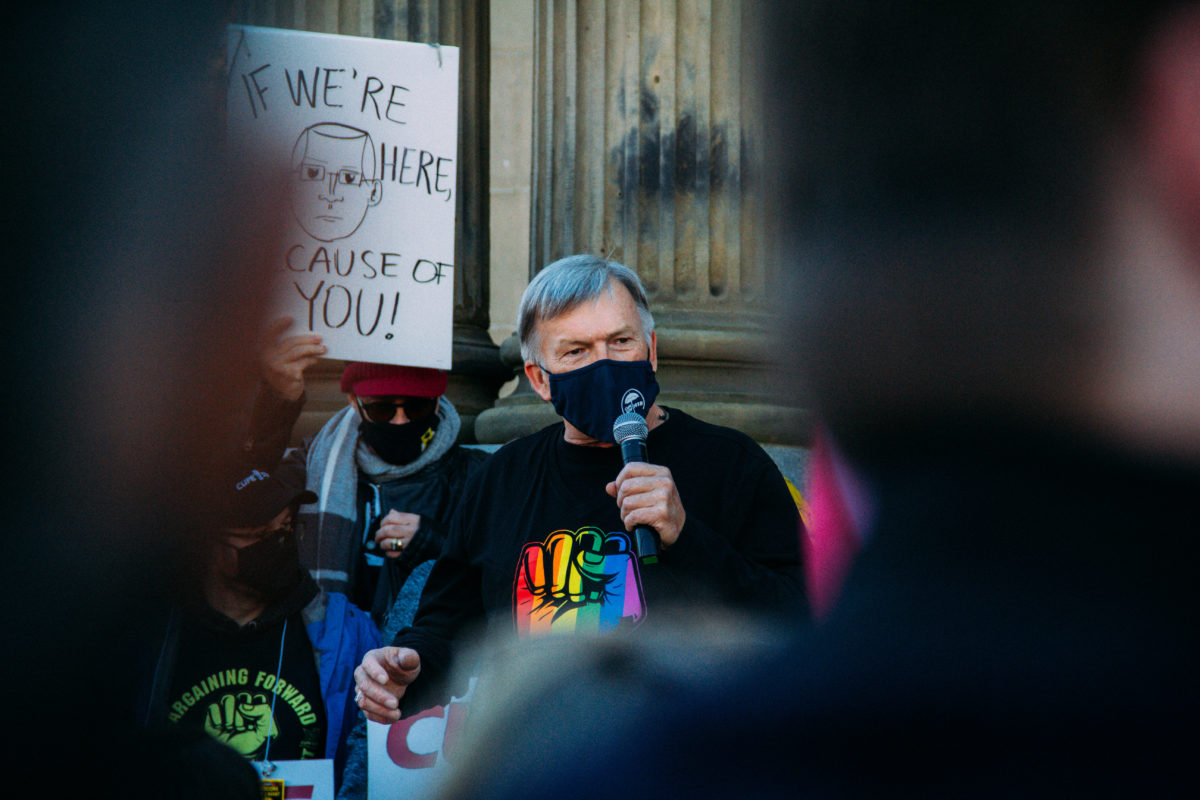
The deal means union members receive a two per cent wage increase over the next five years, along with an additional 25 cents per hour for each of the five years. In addition, casual workers receive 100 per cent pay.
Drost said this is significant since some workers only got paid four out of five days they worked.
“I don’t know how any person could ever see that as fair, but the government [saw] its way,” he said. “All in all, the general economic wage package was certainly better than what we’ve seen in years.”
Drost called the bargaining round over the 16-day strike “most unusual” and “totally unnecessary,” noting how the province used advertisements on TV, radio and social media apps, such as the Kijiji and Weather Network apps, to promote the deal it offered to CUPE.
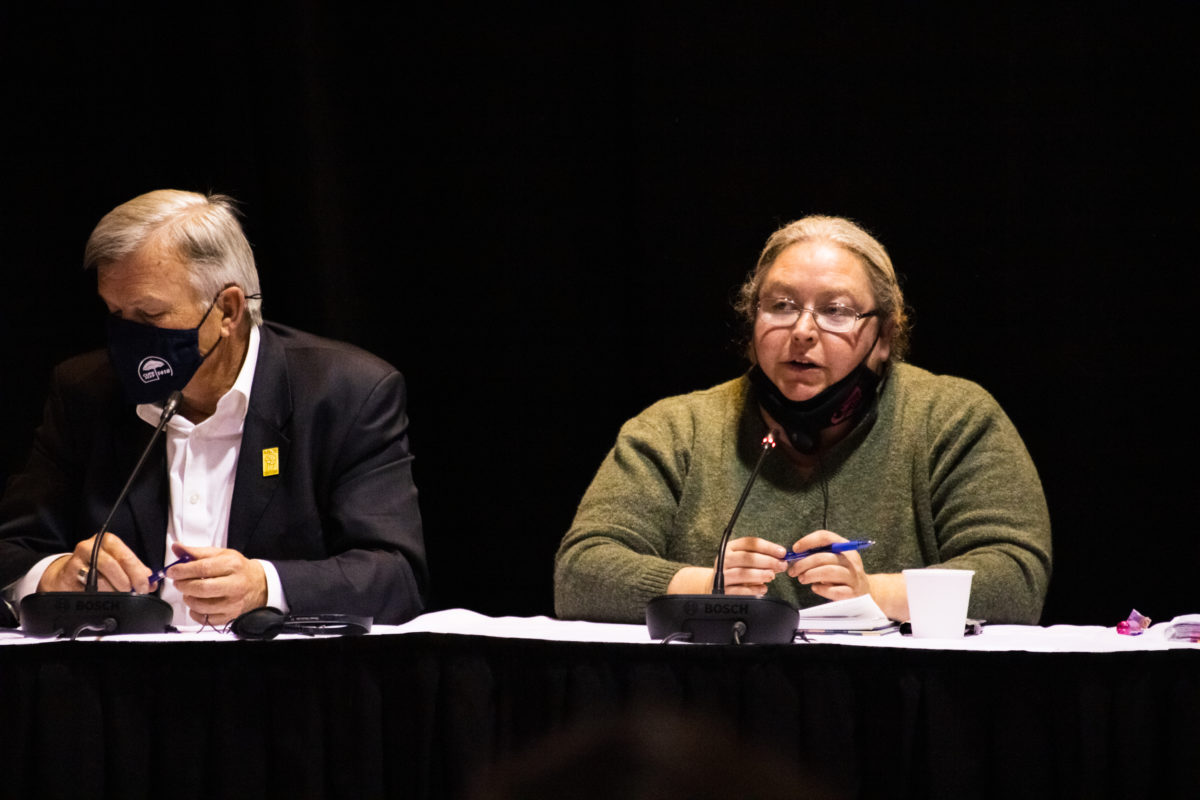

Iris Lloyd, president of CUPE Local 1253, said her members rejected the province’s deal because it was unclear in the language as to how the new pension model would look.
“[Members] left me with a clear mandate – to go back to the bargaining table and bargain language that they can ratify,” said Lloyd. “Not being able to provide answers like that to my members left them feeling that they were voting away their collective bargaining rights.”
CUPE 1253 currently uses a defined benefit pension plan, which has employers promise to pay a regular income after a person retires. Shared risk pensions guarantee base benefits, but only grants ancillary benefits if allowed by a plan’s financial condition.
Lloyd said her membership doesn’t want a shared risk pension model. She explained that members want more clear and concise language from the Higgs’ government to understand what they were looking at for their future.
Calls have already been made for her bargaining team to return to the table.
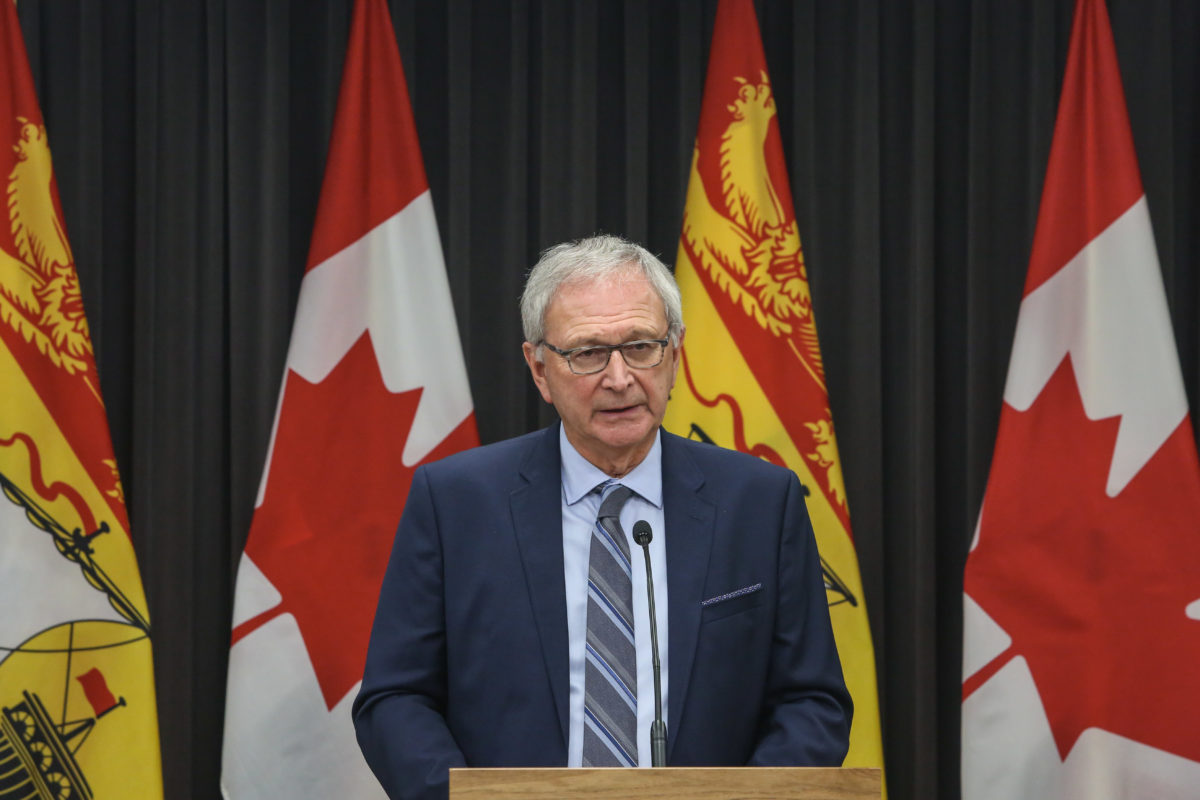

According to a government press release, Premier Blaine Higgs said officials and CUPE 1253 would meet Friday to allow the union to “provide more information.” Higgs said the ratified agreements are fair for employees and taxpayers.
“We were able to balance the needs at both sides of the table to find a solution that includes substantial wage increases for all bargaining groups,” said Higgs in the release.
“It is disappointing that CUPE 1253 did not ratify the agreement, which would have helped provide all employees better access to sustainable pensions.”
In an interview with The Aquinian prior to Friday’s announcement, Drost said the province wanted to change the pensions because officials felt they were financially unsustainable. During the last rounds of bargaining, workers proposed changes to ensure a deal was sustainable.
“Our workers never wanted to go on strike,” said Drost. “They hadn’t had contracts in four or five years and hadn’t had fair wages in 15 to 20 years.”
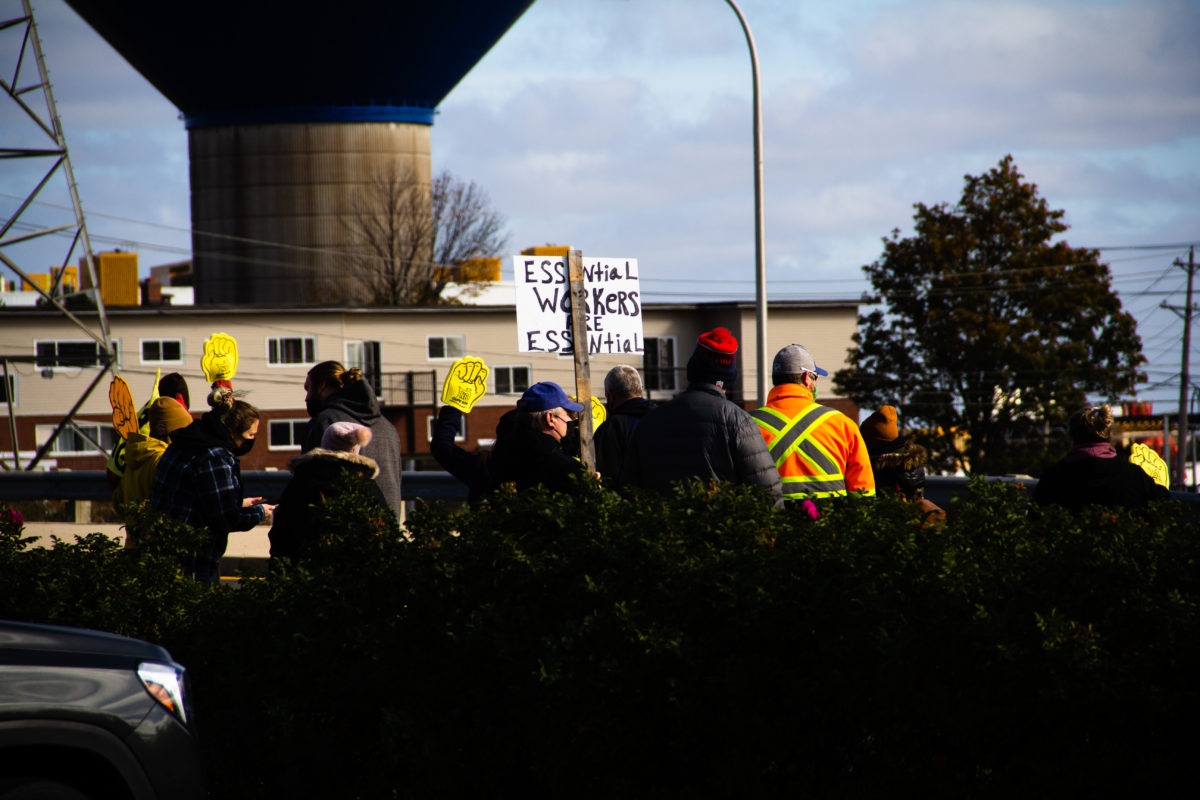

While employees from Local 1253 continue towards bargaining, Lloyd said members are more than willing to return to work and keep public schools open. In addition, Drost said CUPE New Brunswick collectively stands behind Local 1253.
Drost said he can’t speculate if other locals will return to the picket lines if negotiations don’t work out, but CUPE will “cross that bridge when we get to it.”
“We do have a very strong pact in this union and it’s that an injury to one is an injury to all, [so] we’re going to stand up and make sure that these members are protected through this process,” said Drost.
According to Lloyd, members don’t want to return to the picket lines. She said they received lots of support from teachers, parents and students during the strike — it’s why Lloyd believes they can settle a deal at the bargaining table to keep children in schools.
Drost said any union that rejects the offer is still within the legal right to strike. But, Lloyd admits she doesn’t know what the next steps could look like if negotiations cease between her membership and the province.
“We are more than willing to take this fight off the streets and go back to the negotiating table,” said Lloyd.
Drost said the union’s victory is only just the beginning. He said it did nothing to address recruitment and retention issues within the health care and education sectors.
“This is a good start, but we [have] a long way to go,” said Drost. “The best recovery plan for New Brunswick is to invest in public services.”
